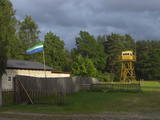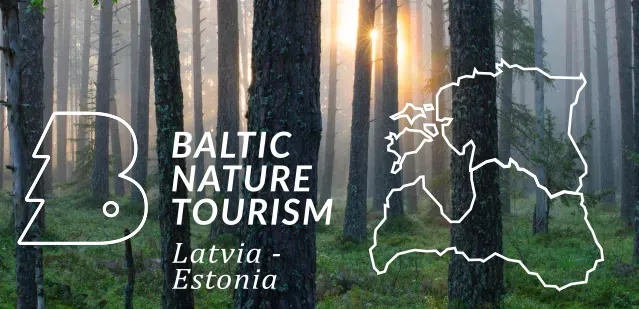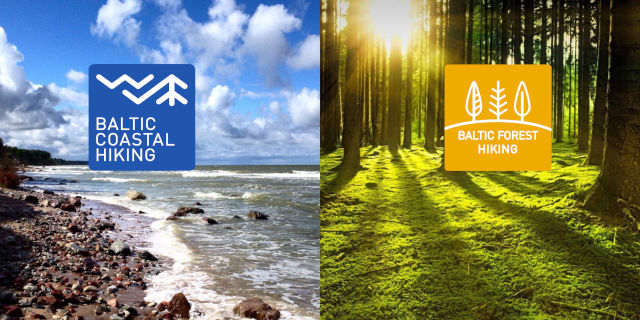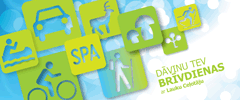The Russian Border Guards and My Passport
Yes, that was slightly childish and boyish on my part, but it was my response to this stupid and humiliating system. I was a local resident. My ancestors had lived there for centuries, and now there were occupants who were demanding at every step that I show my passport. I was unbendingly spiteful and proud about this. I didn’t have my passport with me, and that was that. I never got tired of the game. In fact, the longer I lived, the more I enjoyed it.
During the Russian occupation, you weren’t allowed to approach the sea when and where you wanted to. Opposite every village, there were zones that were a few hundred metres long, and you were not allowed to move past that zone. Also, the time when you could be on the beach in the first place was strictly limited – from May until the beginning of October, and from 9:00 AM to 10:00 PM.
There were lots of times when people dragged themselves from the fields where they’d been mowing the hay all day. They were sweaty and wanted to go swimming, but no, it was too late. I didn’t pay that much attention to it all. Sometimes we avoided the soldiers altogether. If they spotted us, we tried to explain what we were doing, and often they let us go. At the same time, though, the border guards felt that they were so mighty, and the locals were so humiliated. Here’s an example:
Once I was in Mazirbe, where I had a few drinks. I was riding home along the forest road on my motorbike. At a border control facility, there were several soldiers digging a big hole outside of the fence. Their commander, a major, was there, as well. He was from Latgale and spoke good Latvian, but he hardly ever spoke the language. I was tipsy, and an idea occurred to me. I got off the motorbike, leaned it against a pine tree and approached the border guards. I marched up to the major and tried to stand at attention, but I wasn’t doing very well with that. I stuttered out this phrase to him in Russian: “Comrade Major! May I approach?” The soldiers all turned and looked at me in surprise. What was this drunk civilian up to? I put on a very sorrowful look and told the officer that I was suffering from a bad skin disease which could be treated with seawater, but now the season was ending, I wouldn’t be allowed to go to the beach, but I really would like to fetch a pail of seawater from time to time and bring it home. The major listened to me carefully, crossed his hands behind his back, and started to pace back and forth, as if he was thinking about something serious. Several times he muttered, “Well, what are we going to do with you?” Then he took his decision and said to me in Russian: “What was your name? Anševics, yes. OK, Anševics. Here’s what we’re going to do. As an exception, we will help you. You can go to the sea anytime during the day. Alongside the footprints of the patrolling soldiers, draw an “A” into the sand.” He demonstrated with his own boot. I was reminded of stories about the years of aristocratic rule in Latvia. If you asked something of the lord persistently, sometimes he was generous enough to grant your wish.
I had lots of run-ins with the soldiers, usually over my passport. This was a closed zone, and there were document checks all the time. I suppose that I was kicked off a bus some 10 times in the zone and on its border. Each time that caused a bit of inconvenience to other passengers and particularly friends and family who were with me. Nothing bad happened. The Border Guard made some calls to make sure who I was, and the bus just had to wait for the five minutes or so until they let me go.
Once there was a terribly absurd situation. I was kicked off the bus very close to my home, by Saunags. I think that they were newly drafted border guards who wanted to prove themselves. Two others and I were taken off the bus, pushed into a car and taken to the headquarters in Saunags – this despite the fact that working people on the bus protested. We were kept there for about three hours. I knew most of the guys at the headquarters. We often played volleyball and football with them. I felt almost like I was with friends, but I was under arrest. After a few formalities, they let us go. It was a dark and rainy autumn evening. By the time we got to Pitrags we were totally soaked. One of my companions had to walk all the way to Mazirbe.
When my daughter Sanita was three or four, I once took her to the seaside late at night to watch the border guards lighting up the beach with a very powerful spotlight. Suddenly something jangled, a dog started to bark, and two men and one dog appeared out of the darkness of night with machine guns in hand. They probably thought that the dog had scented someone who had violated border rules. The darkness was split by a beam of light. We were taken to a vehicle. I spoke to the major by phone. I didn’t have to go to Mazirbe only because I had my child with me. I was told never to do such a silly thing again. It was dark, there were men with firearms – anything could have happened out of urgency and fear.
I have never in my life purposefully tried to enter a risky situation, but not bringing my passport with me was an exception. I hardly ever carried it except in those cases when it was mandatory. On the workers’ bus, where documents were checked often, they usually didn’t even kick me off the bus. They knew that once the soldiers got to Gunārs, there would be a greater or lesser fuss over the fact that he did not have his documents with him. Yes, that was slightly childish and boyish on my part, but it was my response to this stupid and humiliating system. I was a local resident. My ancestors had lived there for centuries, and now there were occupants who were demanding at every step that I show my passport. I was unbendingly spiteful and proud about this. I didn’t have my passport with me, and that was that. I never got tired of the game. In fact, the longer I lived, the more I enjoyed it.
There were lots of times when people dragged themselves from the fields where they’d been mowing the hay all day. They were sweaty and wanted to go swimming, but no, it was too late. I didn’t pay that much attention to it all. Sometimes we avoided the soldiers altogether. If they spotted us, we tried to explain what we were doing, and often they let us go. At the same time, though, the border guards felt that they were so mighty, and the locals were so humiliated. Here’s an example:
Once I was in Mazirbe, where I had a few drinks. I was riding home along the forest road on my motorbike. At a border control facility, there were several soldiers digging a big hole outside of the fence. Their commander, a major, was there, as well. He was from Latgale and spoke good Latvian, but he hardly ever spoke the language. I was tipsy, and an idea occurred to me. I got off the motorbike, leaned it against a pine tree and approached the border guards. I marched up to the major and tried to stand at attention, but I wasn’t doing very well with that. I stuttered out this phrase to him in Russian: “Comrade Major! May I approach?” The soldiers all turned and looked at me in surprise. What was this drunk civilian up to? I put on a very sorrowful look and told the officer that I was suffering from a bad skin disease which could be treated with seawater, but now the season was ending, I wouldn’t be allowed to go to the beach, but I really would like to fetch a pail of seawater from time to time and bring it home. The major listened to me carefully, crossed his hands behind his back, and started to pace back and forth, as if he was thinking about something serious. Several times he muttered, “Well, what are we going to do with you?” Then he took his decision and said to me in Russian: “What was your name? Anševics, yes. OK, Anševics. Here’s what we’re going to do. As an exception, we will help you. You can go to the sea anytime during the day. Alongside the footprints of the patrolling soldiers, draw an “A” into the sand.” He demonstrated with his own boot. I was reminded of stories about the years of aristocratic rule in Latvia. If you asked something of the lord persistently, sometimes he was generous enough to grant your wish.
I had lots of run-ins with the soldiers, usually over my passport. This was a closed zone, and there were document checks all the time. I suppose that I was kicked off a bus some 10 times in the zone and on its border. Each time that caused a bit of inconvenience to other passengers and particularly friends and family who were with me. Nothing bad happened. The Border Guard made some calls to make sure who I was, and the bus just had to wait for the five minutes or so until they let me go.
Once there was a terribly absurd situation. I was kicked off the bus very close to my home, by Saunags. I think that they were newly drafted border guards who wanted to prove themselves. Two others and I were taken off the bus, pushed into a car and taken to the headquarters in Saunags – this despite the fact that working people on the bus protested. We were kept there for about three hours. I knew most of the guys at the headquarters. We often played volleyball and football with them. I felt almost like I was with friends, but I was under arrest. After a few formalities, they let us go. It was a dark and rainy autumn evening. By the time we got to Pitrags we were totally soaked. One of my companions had to walk all the way to Mazirbe.
When my daughter Sanita was three or four, I once took her to the seaside late at night to watch the border guards lighting up the beach with a very powerful spotlight. Suddenly something jangled, a dog started to bark, and two men and one dog appeared out of the darkness of night with machine guns in hand. They probably thought that the dog had scented someone who had violated border rules. The darkness was split by a beam of light. We were taken to a vehicle. I spoke to the major by phone. I didn’t have to go to Mazirbe only because I had my child with me. I was told never to do such a silly thing again. It was dark, there were men with firearms – anything could have happened out of urgency and fear.
I have never in my life purposefully tried to enter a risky situation, but not bringing my passport with me was an exception. I hardly ever carried it except in those cases when it was mandatory. On the workers’ bus, where documents were checked often, they usually didn’t even kick me off the bus. They knew that once the soldiers got to Gunārs, there would be a greater or lesser fuss over the fact that he did not have his documents with him. Yes, that was slightly childish and boyish on my part, but it was my response to this stupid and humiliating system. I was a local resident. My ancestors had lived there for centuries, and now there were occupants who were demanding at every step that I show my passport. I was unbendingly spiteful and proud about this. I didn’t have my passport with me, and that was that. I never got tired of the game. In fact, the longer I lived, the more I enjoyed it.
| Tourism objects involved in this story | ||
|---|---|---|
Пост береговой погранохраны размещался в здании бывшей Морской школы. В постсоветские времена в отдельных частях зданий предлагались услуги ночлега. Башня погранохраны – один из сохранившихся наилучшим образом объектов на берегу моря. |
||










